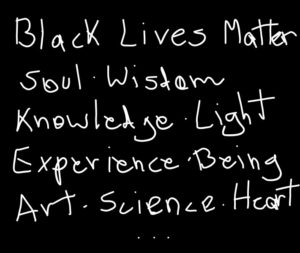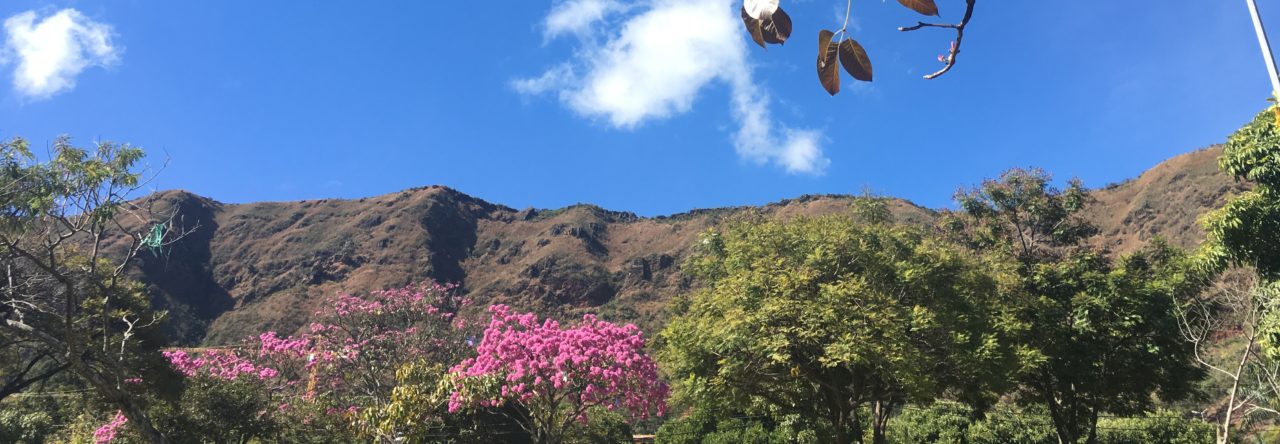“If I think of you as somehow different from me, if I think that I'm Tibetan, I'm Buddhist, an Easterner, I'm a monk or even something grand like His Holiness the Dalai Lama, this kind of thinking automatically creates a gap between us. It results in a sense of unease. On the other hand, if I consider you as another human being, just like me, then that source of anxiety disappears.” Dalai Lama (Retrieved from Facebook post on July 4th 2020)
 My heart, together with hearts all around the world, feels for all Black Lives. How they are treated, and how the system is set up to hinder their opportunities from birth, [NY Times article]; how police have at times been trained to treat humans differently based on skin color; and how laws, and policies have not been enough to protect their rights. It is also alarming how the Coronavirus is further demonstrating racial inequalities in Black and Latinx communities [NY Times article].
My heart, together with hearts all around the world, feels for all Black Lives. How they are treated, and how the system is set up to hinder their opportunities from birth, [NY Times article]; how police have at times been trained to treat humans differently based on skin color; and how laws, and policies have not been enough to protect their rights. It is also alarming how the Coronavirus is further demonstrating racial inequalities in Black and Latinx communities [NY Times article].
What may need to happen? I am not an expert in social and political sciences. I am educating myself and trusting that experts are discussing and creating solutions for the more in depth, complete, and much needed policies, eloquently being protested for at this time. In my point of view, real change must include grass roots organizations, national and local non-profit organizations, advocates, lobbyists, politicians, elected officials (which we all have the responsibility to choose wisely, vote, and hold accountable), and educators. All who have the knowledge, willingness, courage, and commitment to create change.
How could others and I contribute? On the one hand, we can listen. We can educate ourselves in every way possible. By reading books and articles, listening to podcasts, watching TED Talks and documentaries, and by having conversations with black colleagues, family members, friends, students, bosses, clients, and suppliers. We can donate to grass roots organizations; make an effort to purchase from black owned businesses; add diversity to a company by hiring people of color and paying everyone based on their skills not skin color; join the #52weeksofantiracistaction movement; to name a few. We can also consider our profession, and what our role is, and if our role could be a catalyst for change. As an entrepreneurship educator, one example of what I do is to discuss cultural and ethnic backgrounds and influences in my courses. I encourage discussions on how small businesses could help with minimizing hate in the world as well.
On the other hand, we can seek to continue deepening our spiritual path, practice kindness towards self and others, and speak up for diversity, equity, and inclusion. This path could include putting in some effort dedicated to self-love. It may require us to go within, look at our own patterns, belief systems, strategies, and how we, currently or in the past, have contributed to racism, even unknowingly. This may involve a great deal of self-care, self-understanding, self-acceptance. The quote by Maya Angelou: “Do the best you can until you know better. Then when you know better, do better”, is a great reminder that once we realize our patterns, it is less about self-blame and shame, and much more about: how will I choose to behave from now on?
Although this most likely has not been scientifically proven yet, I imagine that with all basic needs met, in a world in which people learned to love themselves, to minimize their inner critic, to understand their value, to know in their core that they truly matter, to express themselves authentically and from a space of love, there would not be room for hate and discrimination. Would you agree?
Self-love is not gloating or self-aggrandizing. One could argue that if someone is gloating, they are seeking approval from someone other than themselves, in order to give self the permission needed to feel loved. To practice self-love is to go beyond societal and cultural expectations of one’s successes and/or failures. Self-love is the deep knowing within oneself that one matters, has value to offer, is a light, for simply existing and being one’s heart centered, authentic Self. There is no need to make someone else smaller, we are all divine beings, and one’s shining light does not create a need for another to be dimmed.
If we could practice loving ourselves as we love our best friends and loved ones, minimizing self-doubt, judgement, and shame, we would likely be happier and have no need for aggrandizement. How? In the past several years, I hosted self-love challenges on this site and on Facebook. The recommendations were simple, specific, and easy to implement. You can check out the daily tasks here, and add your own routine of practicing self-love. The main points are to prioritize self-care, self-acceptance, self-growth, authentic self-expression, and to take a step further to contribute to building a community that values equity, acceptance, understanding, appreciation, communication, and safety.
How does self-love matter in a world that is in need for everyone to understand, care, respect, and act to create a world that Black Lives Matter? That Latinx, Native American and Asian Lives Matter? The more one is aware, knows, and embraces who they are, as they are, with all the nuances of color, and cultural heritage, the more likely they will be willing to do the same for others of different characteristics. This awareness will have to go beyond the intrinsic discrimination that a culture might inherently propagate. If one’s culture encourages hate, and one can take a step back to see it clearly, one would then have the power and ability to start breaking the cycle of hate, to walk across the aisle, to have conversations, and to learn to love and respect one another.
“If we are going to be violent to our self, how are we going to contribute to creating a world of peace? Peace begins within us” Marshall Rosenberg
In addition, I recommend the study and practice of empathy and the Nonviolent Communication (NVC) language. I am currently part of a study group of the book, which I highly recommend: “Speak Peace in a World of Conflict – What you say next will change your world.” I also recommend “Nonviolent Communication” both books are written by Marshall Rosenberg. NVC, just like self-love, is another lifelong practice, and it centers on looking at our own needs and feelings, and to consider what the needs are that others are trying to satisfy by behaving a certain way. If the actions are not heart centered, or not serving the highest good of all, consider planting a seed for change. This requires checking the needs and feelings behind an action, and then making a request of yourself or of the other person, if you/they would be willing to choose another alternative that would satisfy your/their needs without causing harm.
How are you seeking to understand and be understood, to make a difference, to contribute to a more equitable world?
Please feel free to share other thoughts, and suggestions. How are you a) practicing self-love; b) participating in Black Lives Matter conversations; c) being a catalyst for change; d) being the change?
Namaste and Stay Safe,
Elisa Balabram

Terry Eldh
Elisa. This is an amazingly detailed and comprehensive look at the situation we are all grappling with. Thank you for your analysis, your ideas and your suggestions. All are very helpful to contemplate, and then hopefully to take action on. Much appreciated.
Elisa Balabram
Terry,
Thank you for reading it and for your feedback. I appreciate it!
Elisa
Débora Balabram
Amazing article. I specially like the part where it says one person's light does not diminish another. In every profession, one must know oneself, one's limits, etc, to develop cultural skills to respect different people. It is urgent to talk about racism, a very sad belief still present in our society.
Elisa Balabram
Thank you, Débora. I agree, developing an awareness and then taking proactive action are key steps.
Lendynette Pacheco-Jorge
Elisa, this is a great piece. Simple yet powerful. Thanks for sharing.
Elisa Balabram
Thank you, Lendy! Hope all is well!